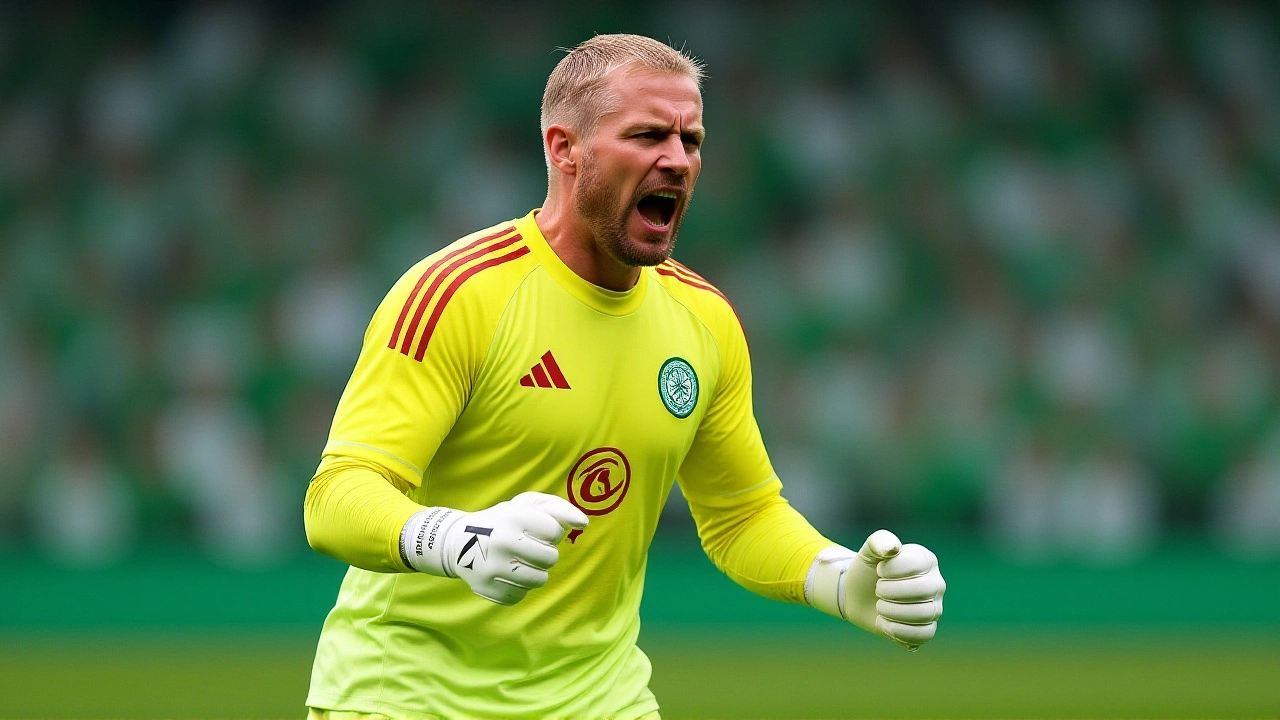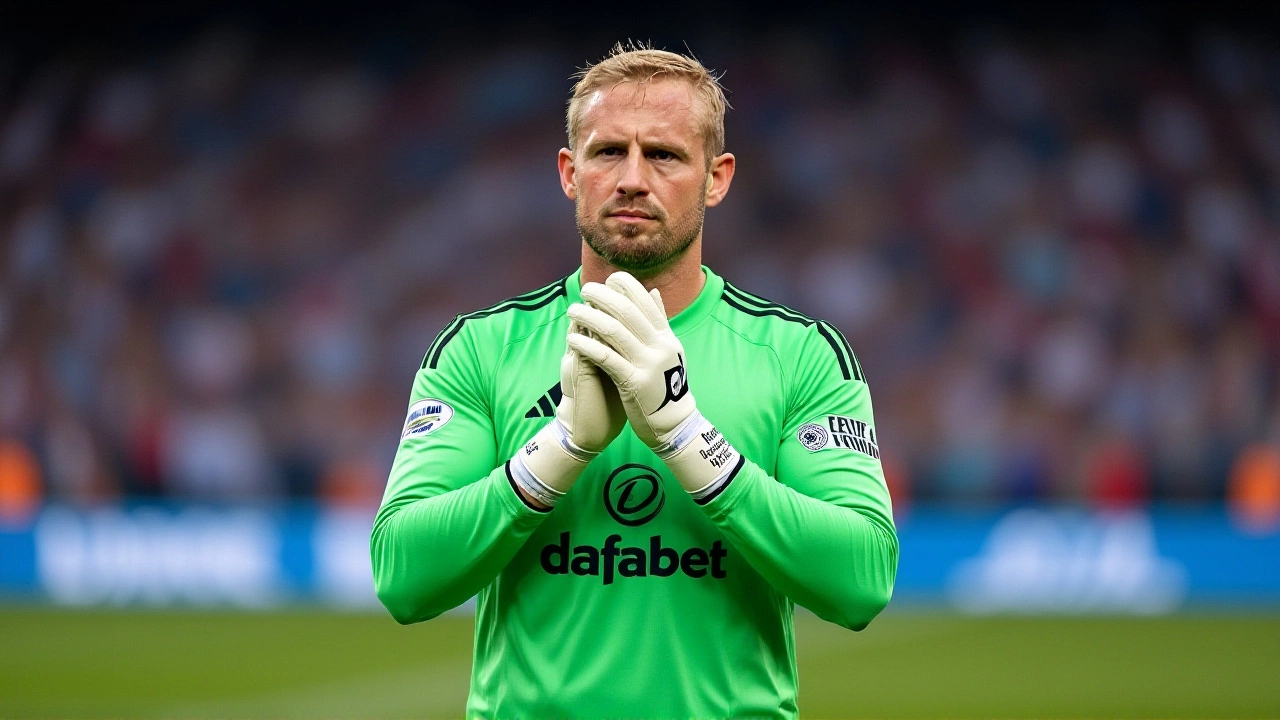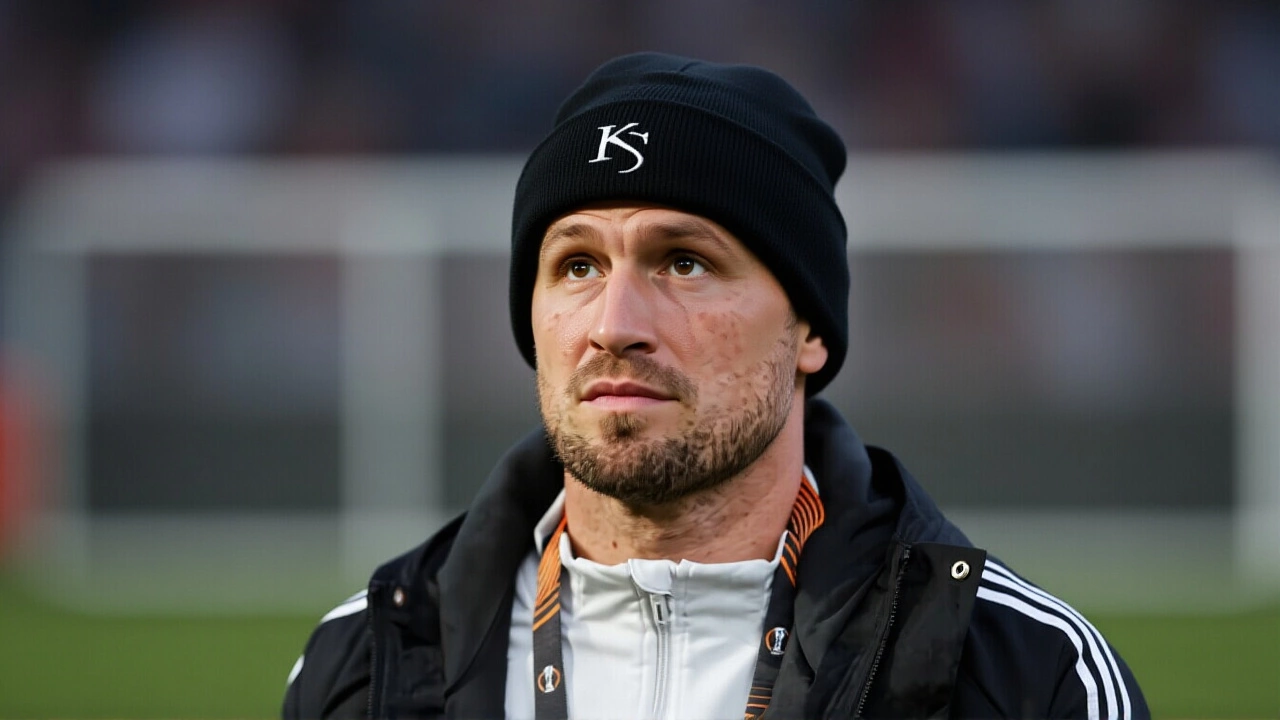When Kasper Schmeichel sat down with the Daily Record on November 13, 2025, he didn’t just talk about his next contract—he exposed a quiet crisis in modern football. At 39, the Danish veteran, who’s been Celtic’s first-choice goalkeeper since July 2024, revealed he and Celtic Football Club have quietly agreed to discuss his future in February or March 2026. Not a press conference. Not a fanfare. Just two parties, a calendar, and the unspoken truth: in football, once you hit 30, you’re already on borrowed time.
The Unspoken Agreement
"The club has bigger things to think about than my contract right now," Schmeichel told reporters, his tone calm but edged with quiet frustration. He’s not asking for a new deal. He’s not demanding assurances. He’s simply waiting. And he’s not alone in this. The entire industry operates on the same unspoken rule: once your age hits three digits, clubs won’t offer contracts longer than six months. "As soon as there is a three-digit number in front of the age, no one will make a contract longer than six months into the future," he said. It’s not just about fitness. It’s about perception. About markets. About the myth that 28 is the cliff edge. Schmeichel, born November 5, 1986, in Copenhagen, has defied that myth. In 18 appearances this season—11 in the Scottish Premiership—he’s kept seven clean sheets. His weekly wage of £20,000, confirmed by SalaryLeak.com, hasn’t changed since his January 22, 2025 extension, which kept him at Celtic Park through summer 2026. He’s not slowing down. He’s just being ignored by the system.Understudy on the Edge
Behind him stands Vini Sinisalo, the 23-year-old Finnish international who’s waited 18 months for his shot. "Every footballer wants to play," Sinisalo said in a quiet interview last month. "Nobody wants to just watch from the stands. The hunger is strong. The desire to perform is even stronger." His frustration isn’t just personal—it’s strategic. With Celtic Football Club eyeing long-term planning, Sinisalo’s potential promotion isn’t hypothetical. The Celtic Bhoys’ November 2025 analysis suggested that if Denmark fails to qualify for the 2026 World Cup, Celtic might accelerate his ascent. But here’s the twist: Schmeichel’s form has actually improved since Brendan Rodgers left in October. Under interim boss Martin O'Neill, who took over two weeks before the interview, Schmeichel started the League Cup semi-final against Rangers at Hampden Park. He didn’t just play—he held his ground. And that matters.
A Legacy Built on Clean Sheets
Schmeichel didn’t arrive at Celtic by accident. He replaced Joe Hart—his former Manchester City teammate—after Hart’s retirement. He reunited with Brendan Rodgers, his former Leicester City manager, in July 2024. And he delivered. He saved the decisive penalty in the December 2024 Scottish League Cup final against Rangers at Hampden Park. He helped lift the Scottish Premiership trophy on April 26, 2025, when Celtic crushed Dundee United 5-0 at Tannadice Park—even though he was injured and watching from the bench. His career arc—from Nice to Anderlecht to Leicester to Celtic—isn’t just a list of clubs. It’s a testament to adaptability. He’s not chasing headlines. He’s chasing integrity. And in a game where young goalkeepers are often rushed into starting roles before they’re ready, Schmeichel’s experience is a rare commodity.What Comes Next?
The February–March 2026 window isn’t just a date. It’s a turning point. If Schmeichel continues his current form, Celtic may face a dilemma: extend him on a short-term deal, or gamble on Sinisalo. But if Denmark qualifies for the World Cup next summer, Schmeichel’s international duties could complicate matters. A player in his late 30s playing 50+ games a season? It’s rare. But not impossible. Celtic’s CEO, Dominic McKay, hasn’t commented publicly. But behind closed doors, the club’s board is weighing more than just one goalkeeper’s future. They’re deciding whether to cling to the past or bet on the future. And Schmeichel? He’s not pressuring them. He’s just waiting.
Why This Matters Beyond Glasgow
This isn’t just about Celtic. It’s about football’s ageism. We celebrate teenage wingers and 22-year-old defenders. But when a goalkeeper like Schmeichel—world-class, consistent, mentally razor-sharp—gets sidelined because he’s 39, we’re not protecting the future. We’re ignoring the value of experience. Look at the Premier League. Alisson, 27, is still elite. Ederson, 28, is a playmaker between the posts. But 39-year-old goalkeepers? They’re anomalies. Schmeichel is one of the last. And if Celtic let him walk without a proper farewell, they won’t just lose a goalkeeper. They’ll lose a symbol of what professionalism looks like in an era obsessed with youth.Frequently Asked Questions
Why is Kasper Schmeichel’s contract being discussed only in early 2026?
Schmeichel and Celtic agreed to delay talks until February–March 2026 to avoid distractions during the 2025/26 season. With his contract expiring in June 2026, the club wants to assess performance, injury risk, and younger options like Vini Sinisalo before committing. This timing also avoids clashing with Denmark’s World Cup qualifiers in March 2026.
Is Vini Sinisalo ready to replace Schmeichel as Celtic’s starter?
Sinisalo has shown promise in cup games and training, but he’s yet to start a top-flight league match. His 18-month stint as backup hasn’t been enough to prove he can handle the pressure of Celtic’s high-stakes fixtures. Schmeichel’s recent clean sheets under O’Neill suggest he’s still the safer option—unless Sinisalo gets a meaningful run in 2026.
How does Schmeichel’s salary compare to other goalkeepers in Scotland?
At £20,000 per week (£1.04 million annually), Schmeichel is among the highest-paid goalkeepers in the Scottish Premiership, matching or exceeding the wages of Rangers’ Joe Wollacott and Hearts’ Zander Clark. His pay reflects his experience and leadership, not just matchday performance—something younger keepers rarely command.
What role does Denmark’s World Cup qualification play in Schmeichel’s future at Celtic?
If Denmark qualifies for the 2026 World Cup, Schmeichel could be away for up to six weeks during the tournament, increasing injury risk and limiting training continuity. Celtic may use this as leverage to push Sinisalo into the starting role earlier. If Denmark fails to qualify, Schmeichel’s availability increases, strengthening his case for an extension.
Has Schmeichel ever considered retiring?
Schmeichel has never publicly hinted at retirement. He’s said his motivation comes from daily competition and the joy of playing. His father, Peter Schmeichel, played until 41. Kasper has shown no signs of physical decline—his reflexes, positioning, and command of the box remain elite. Retirement, if it comes, will likely be his own decision, not a club’s.
What’s the historical significance of Schmeichel’s time at Celtic?
Schmeichel is the first goalkeeper since Craig Gordon to win both the Scottish Premiership and League Cup in his debut season at Celtic. He’s also the only Danish keeper to win major domestic trophies in Scotland. His penalty save in the 2024 League Cup final against Rangers is already being called one of the most clutch moments in the club’s modern history.

